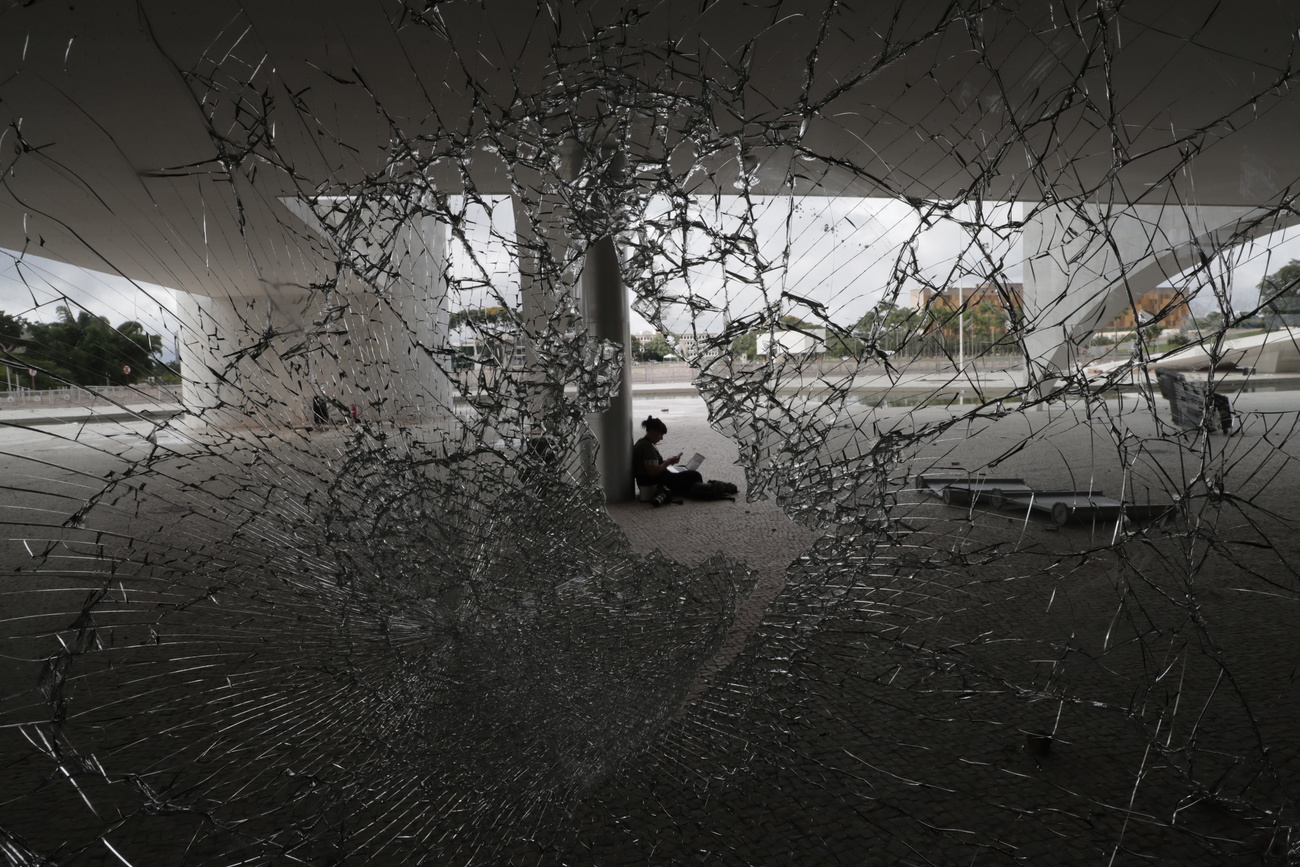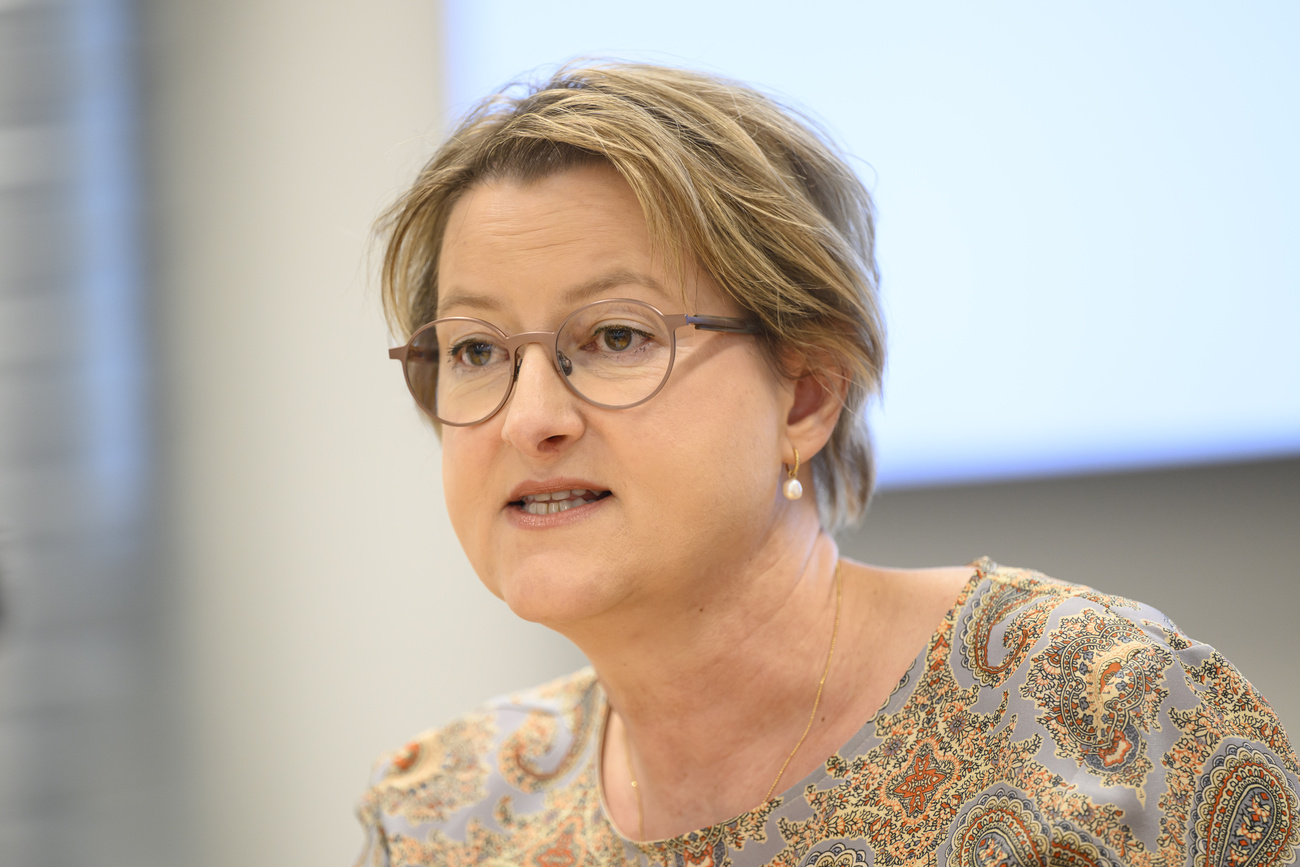
WEF tries to dodge revolutionary pitchforks

The threat of social unrest will test the mettle of political and business elites when the World Economic Forum (WEF) meets at the start of an unsettling and unpredictable 2023.
The soaring cost of fuels and food contributed to protests and industrial action across the globe last year. Popular discontent fueled regime changes in Sri Lanka, Britain, Peru and Brazil – the latter disputed by a storming of Congress in Brasilia in early January, in scenes that mirrored those in the United States in 2021.
“People are becoming dissatisfied with society and wondering why they are cooperating,” said Morris Pearl, chair of Patriotic Millionaires, a group of wealthy people in the United States who paradoxically argue they should be taxed more to fight inequality.
“People are right to get angry. They think the system is rigged against them and they are right. We are afraid that unless wealthy people change voluntarily, the masses, marching with their pitchforks, will change things for us.”
Economists are predicting more pain to come, heaping further pressure on households the world over.
The International Monetary Fund (IMF) warns that a third of the world’s economy could be plunged into recession in 2023, predicting that inflation will cool this year but will still hit 6.5% globally (compared to forecast 8.8% inflation in 2022). “For most of the world economy, this is going to be a tough year, tougher than the year we leave behind,” IMF managing director Kristalina Georgieva told the US broadcaster CBS on January 1.
Worst to come
The 2,500 delegates attending WEF’s flagship event have debated their way through many a crisis over the years at the Swiss ski resort of Davos.
But this time around, it’s difficult to know where to begin to fulfil the organisation’s stated intention of “Improving the State of the World”.
Countries are still paying the bill for two years of Covid-19 pandemic lockdowns amid concerns that the virus may again be unleashed in full fury as China re-opens its borders.
The bloodshed inflicted by Russia’s invasion of Ukraine shows no signs of abating, which has driven up the cost of energy and many food staples.
This has contributed to rampant inflation of consumer goods that is dragging more people into financial difficulties around the world.
The NGO Oxfam International sounded the alarm bell at last year’s WEF meeting in May, warning that the pandemic, inflation and the Ukraine war could drive 263 million people into poverty.
Oxfam fears that social divisions will be opened by growing inequality because people on low incomes bear the greatest brunt of the rising cost of living.
“The cost-of-living crisis comes on top of the ongoing Covid-19 crisis, which has seen governments and the global community fail to prevent the biggest increase in extreme poverty in over 20 years,” the NGO stated.
Even a country as prosperous as Switzerland has not been totally spared the pain. The strong franc contributed to keeping inflation down to 2.8% last year, but this is still a 30-year high.
The latest official statistics state that 735,000 out of an 8.5 million Swiss population (8.7%) lived in poverty in 2019. The charity Caritas believes the proportion of people unable to make ends meet is now much higher, following coronavirus and a year of inflation.
+ Who’s coming to WEF in Davos in 2023
For a growing number of people “where money may have been tight before, there is now simply not enough at the end of the month to cover running costs”, according to Caritas spokeswoman Livia Leykauf.
Because so many people live just above the official breadline, it will only take a small increase in costs to double the poverty rate in Switzerland, a Caritas study concluded last year.
“We must assume that the situation (in Switzerland) will deteriorate further in the coming weeks and months and that more people will be affected by poverty,” said Leykauf.
More
WEF to the rescue?
WEF opens its week-long annual meeting on January 16 under the motto: ‘Cooperation in a Fragmented World’. WEF fears the world is facing a “decade of uncertainty and fragility” in the face of the Ukraine war, increasing tensions between China and the West, food shortages in many countries and the unresolved issue of how to tackle climate change.
Respondents to WEF’s annual Global Risks Report rank the ‘Cost of Living Crisis’ as the number one short-term threat to stability, as this could lead to “rising poverty, hunger, violent protests, political instability and even state collapse”.
“Associated social unrest and political instability will not be contained to emerging markets, as economic pressures continue to hollow out the middle-income bracket”, which could pose “existential challenges to political systems around the world,” the report elaborates.
The risk of “Erosion of Social Cohesion and Societal Polarisation” is judged the fifth-most likely cause of immediate instability.
WEF sees itself as part of the solution to the world’s problems, by bringing together influential parties from around the world to tackle the most pressing issues.
But others are not so sure. Patriotic Millionaires, a group of more than a hundred wealthy individuals mainly from the US, delivered a scathing verdict last year.
“The truth is that Davos doesn’t deserve the world’s trust right now. For all the countless hours spent talking about making the world a better place, the conference has produced little tangible value amidst a torrent of self-congratulations,” the group stated in an open letter a year ago.
And Morris Pearl sees no change a year on. “WEF symbolises inequality. They make a huge amount of money by charging people to come to the conference. I have not seen any solid evidence that the people running the conference or attending are planning to change the course of this growing inequality,” he told SWI swissinfo.ch.

In compliance with the JTI standards
More: SWI swissinfo.ch certified by the Journalism Trust Initiative
































You can find an overview of ongoing debates with our journalists here . Please join us!
If you want to start a conversation about a topic raised in this article or want to report factual errors, email us at english@swissinfo.ch.